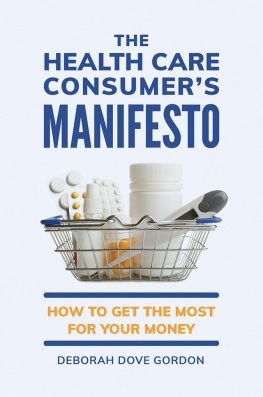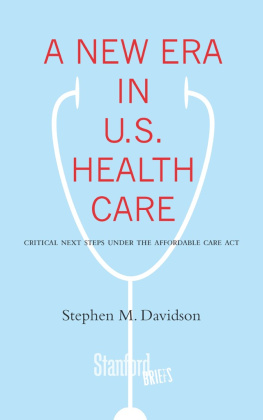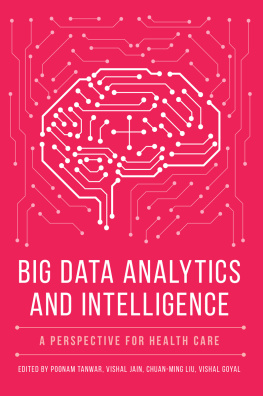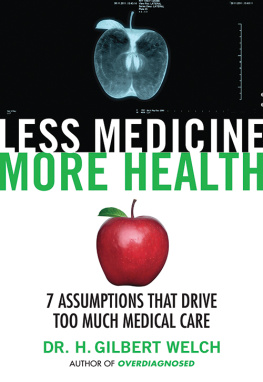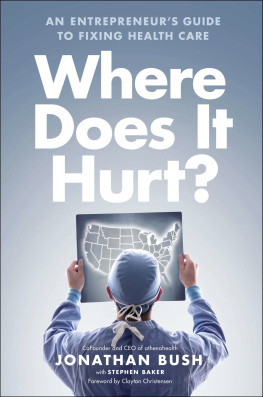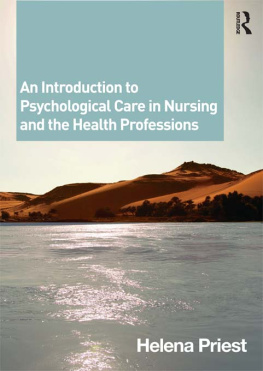
Mention of specific companies, organizations, or authorities in this book does not imply endorsement by the author or publisher, nor does mention of specific companies, organizations, or authorities imply that they endorse this book, its author, or the publisher.
Internet addresses and telephone numbers given in this book were accurate at the time it went to press.
2013 by Linda Marsa
All rights reserved. No part of this publication may be reproduced or transmitted in any form or by any means, electronic or mechanical, including photocopying, recording, or any other information storage and retrieval system, without the written permission of the publisher.
Portions of this book were previously published in Discover, Pacific Standard, and in the collection Best American Science Writing, 2012.
Book design by Amy C. King
Library of Congress Cataloging-in-Publication Data is on file with the publisher.
ISBN-13: 9781605292014 hardcover
eISBN-13: 9781609619961

We inspire and enable people to improve their lives and the world around them.
rodalebooks.com
To William R. Roberts, who makes all things possible
To Patrice Adcroft, my mentor and great friend
C ONTENTS
A CKNOWLEDGMENTS
A book of this magnitude and scope cannot be executed without the help of legions of unsung heroes behind the scenes. First and foremost, my incisive editor at Discover, Pamela Weintraub, who consistently pushes me to do my best work, assigned me the story that was the original springboard for this book and supportively midwifed this project throughout its lengthy gestation. No writer could have a better champion than my agent, Alice Fried Martell, whose fierce and unflagging enthusiasm, energy, and encouragement have buoyed me through even severe bouts of self-doubt. This book would not have happened without her. My capable assistant, Angelique Robinson, functioned as a combination researcher/therapist, prodding me when I procrastinated, talking me off the ledge when I became overwhelmed, and stopping me from falling down the rabbit hole of minutiae.
Every author should have the exemplary experience I did working with the top-notch team at Rodale. Colin Dickerman, the acquiring editor at Rodale, was among the first to recognize this books potential. His graceful and witty successor, Alexandra Postman, who came on board midstream, deftly guided this project to completion and lassoed my sometimes-flaccid prose into a taut and seamless narrative. Thanks, too, to Amy King for her sharp design; to Nancy Elgin for all her hard work ensuring my prose made sense, was accurate, and flowed smoothly; and to Nancy Bailey for keeping us on track every step of the way.
Dozens of sources who gave generously of their time have been acknowledged elsewhere. But a handful merit special recognition. Initially, research conducted by Dr. Kim Knowlton of the Natural Resources Defense Council into how climate change was driving the spread of dengue fever prompted me to delve more deeply in this area and ultimately inspired Fevered. The CDCs Dr. George Lubers insights were invaluable and our lengthy conversations guided how I structured the book. Down Under, the Australians more than lived up to their reputation as peerless hosts. Public affairs officer extraordinaire Liese Coulter, who was at CSIRO but is now with NCCARF in Brisbane, brought me up to speed on the key issues facing Australia at a time when the learning curve seemed vertical. Similarly, Dr. Chris Cocklin of James Cook University patiently spent many hours giving me his perspective and directed me to key experts who were integral to my research. Elizabeth Hanna of Australia National University not only shared her expertise, but she and her husband, Fergus, also graciously spent a couple of days showing me around Canberra.
Im also surrounded by a network of supportive family and friends who make me laugh and keep me on an even keelthey are too numerous to mention. However, special kudos to my longtime pal, Edward Silver, who came up with the books title. On the home front, my husband, Bill Roberts, and my stepson, Nathan, make my life complete and are daily reminders as to why this book is so important.
I NTRODUCTION
When the Weather Goes Haywire
It was the most beautiful day. My husband, Bryce, woke me up before sunup to look at the most beautiful sunrise you ever saw. I was grumpy because it was Sunday morning and we usually slept late on Sunday. But I got up and went out and there were the most beautiful streaks going up from the horizon, way up in the sky, just all colors, just like the northern lights.
Thats how Bernice Jackson remembered that fateful Palm Sunday in April 1935 in an oral history interview she gave half a century later to the Oklahoma Historical Society. She was a young farm wife then, living with her husband and their four-year-old son, John, in a clapboard two-story house, raising cows, pigs, and chickens and growing wheat and tomatoes on a hardscrabble patch of the Oklahoma panhandle. Weeks of relentless dust stormsalmost 50 in the previous three monthshad howled across a parched landscape baked by years of drought and record-breaking heat that often soared into the triple digits; these storms had already blown out five million acres of farmland and destroyed most of the wheat crop in Kansas, Nebraska, and Oklahoma. Parts of Kansas had seen barely a dozen dust-free days since the start of the year, and some areas had suffered dust storms every single day in March. But suddenly, on that cloudless morning, the wind stopped, and an eerie stillness settled into the air. The day dawned sunny and clear, with seemingly endless blue skies and temperatures that climbed into the mid-80s by early afternoon. Bryce, Bernice told her husband, maybe thats an omen that our dust storms are over and its going to rain.
Across hundreds of miles of prairie dotted with hamlets that often contained no more than a post office, a general store, and a church, people streamed outside into the bright, balmy dayas if emerging from a deep hibernationto tackle the chores they had delayed all spring because of the storms: repairing broken fences and henhouses, planting gardens, sweeping out barns covered in a layer of siltlike dust, attending church services, and driving to visit their neighbors.
Bryce made a deal with Bernice: If shed help him milk the cows, hed help her clean up the house. There was dirt everywhere from the dusters, as the storms were calledall over the beds, the floors, the windowsills. Even their pillows bore faint dusty outlines of where their heads had laid. The couple spent most of the day sweeping and scrubbing down the windows, filling up two wheelbarrows with dirt. Then Bernice mopped the linoleum floors in the kitchen and bedrooms until they gleamed. Bryce insisted it was just a foolish waste of time. Tomorrow the dirts going to come again, he chided. But it made her proud that the house looked so nice, Bernice recalled, and she was grateful for having one day when they could eat a meal without tasting grit in their teeth. When they were finished, they sat out on the back porch basking in the afternoon sunshineuntil they noticed rolling black clouds on the far horizon.


